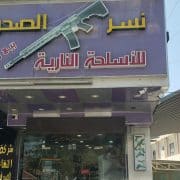More than once, when I argued about gun control with different people, I heard the same argument: “If you want to have your precious “assault weapons” – go live in Iraq, Afghanistan, or Somalia, they have no gun laws, you’ll be happy there owning your silly weapons of war”. However, after working in those places for a while, I realized that all of the above-mentioned countries have extremely restrictive gun laws. And Iraq is perhaps the best example of that.
Last year, I was visiting Iraq for the 10th time and had an opportunity to look at the local gun shops and gun markets that thread a fine line between the black market and legal industry in the country where the distinction between the two is blurry.
Depending on the region, the market changes dramatically. Before we begin our journey to Baghdad, I want to thank my good friend Dr. A., who helped me immensely to discover all the intricate details of the Iraqi gun trade and was the most welcoming and caring host of all my trips to Iraq.
Baghdad gun shops

The average Baghdad gun shop (right) is usually rather small
If you want to visit a gun store in Baghdad, you’ll face two problems. First, the shops are few and far between. Second, they all are owned by various militia groups that generally aren’t very happy with foreigners window shopping in their fine establishments.
Before visiting the stores, we sent a team to do a quick survey of the places, we parked away from the shop, not on the street, and made sure we don’t wear anything resembling a uniform. The visits were quick, but nevertheless, entertaining.
The average Baghdad gun shop is around 12-18 square meters (120-180 square feet) large, smaller than the size of a typical Bass Pro Shop bathroom. The selection in the shop consists of modern Turkish shotguns and plenty of old revolvers and very few new pistols.
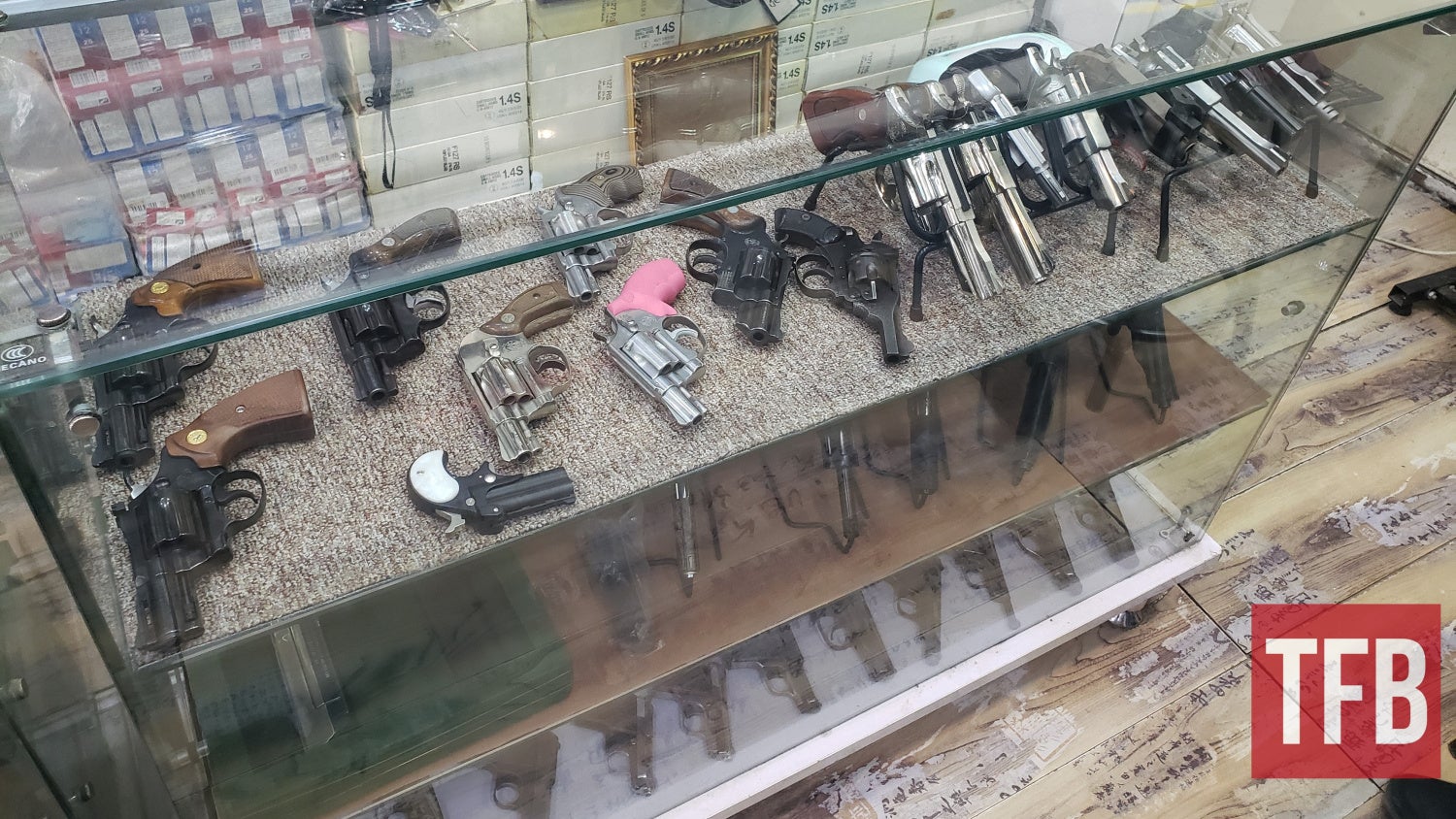
Handgun display in one of the Baghdad shops
Sometimes you would see an AK or something else that captivates your attention, but it is always just a display piece, not something you can actually buy. So why the selection is so disappointing? Local dealers have nothing to be blamed for, they are doing all they can
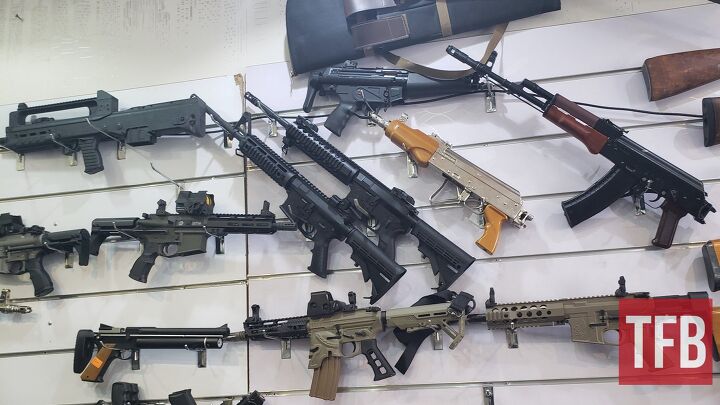
Most of the rifles are display pieces, and shop owners often use airsoft to attract attention to the display
In Iraq, the importation of firearms for the civilian market is restricted, except for shotguns. So when you come to the shop that operates within the existing Iraqi legal framework, there isn’t much to look at. Just plenty of cheap double barrel, pump action, and semi-automatic shotguns, and a bunch of pistols.
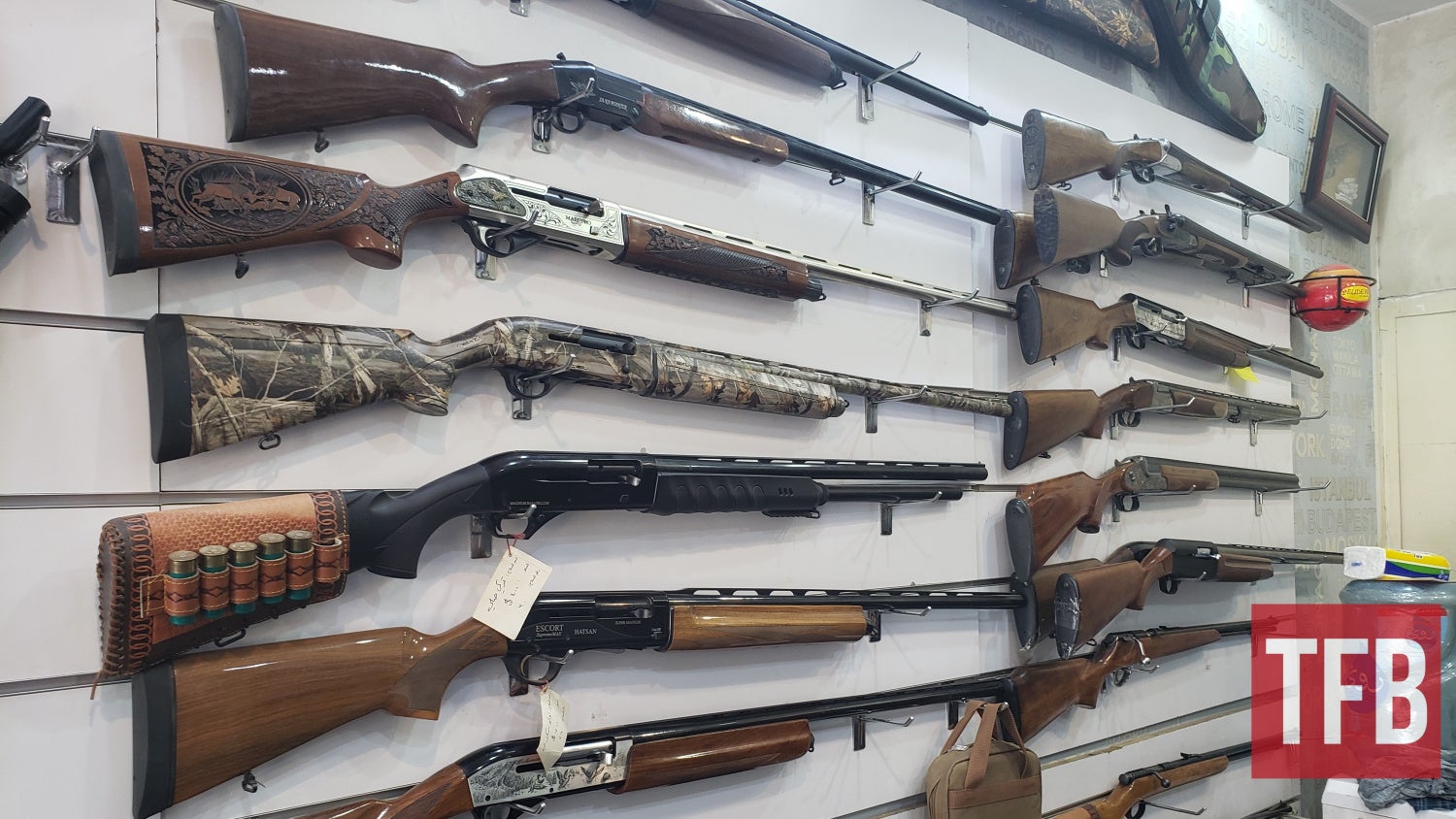
A typical display of shotguns in a Baghdad gun shop
Prices in Iraqi guns shops
Obviously, some newer handguns trickle down through Iraqi borders, but you pay a premium to get one. A Glock 19, especially Gen 4 and 5 retails for $4000-$5000 in Baghdad. An old Makarov costs around $1000, but the relative affordability of it is diminished by appalling 9×18 ammo prices. One Makarov round is priced at $3.
The only new pistol you see almost everywhere is the Croatian-made HS 2000, better known in the US as Springfield XD. You can buy one for $2000-$2100, I’ve seen both full-size and compact versions used by various security companies. Iraqi-made Tariq pistols are available for around $1000.
Gun shops also have plenty of accessories, mostly cheap Chinese products: plastic gun cases, spare magazines, locally-made leather holsters, gun paint, and plenty of air guns. Good stuff always costs money, in one of the shops contemplated buying a heavily used Aimpoint COMP M4 (US Military M68 Close Combat Optic), but the sales guy wanted $2000 for it, so I passed on the opportunity.
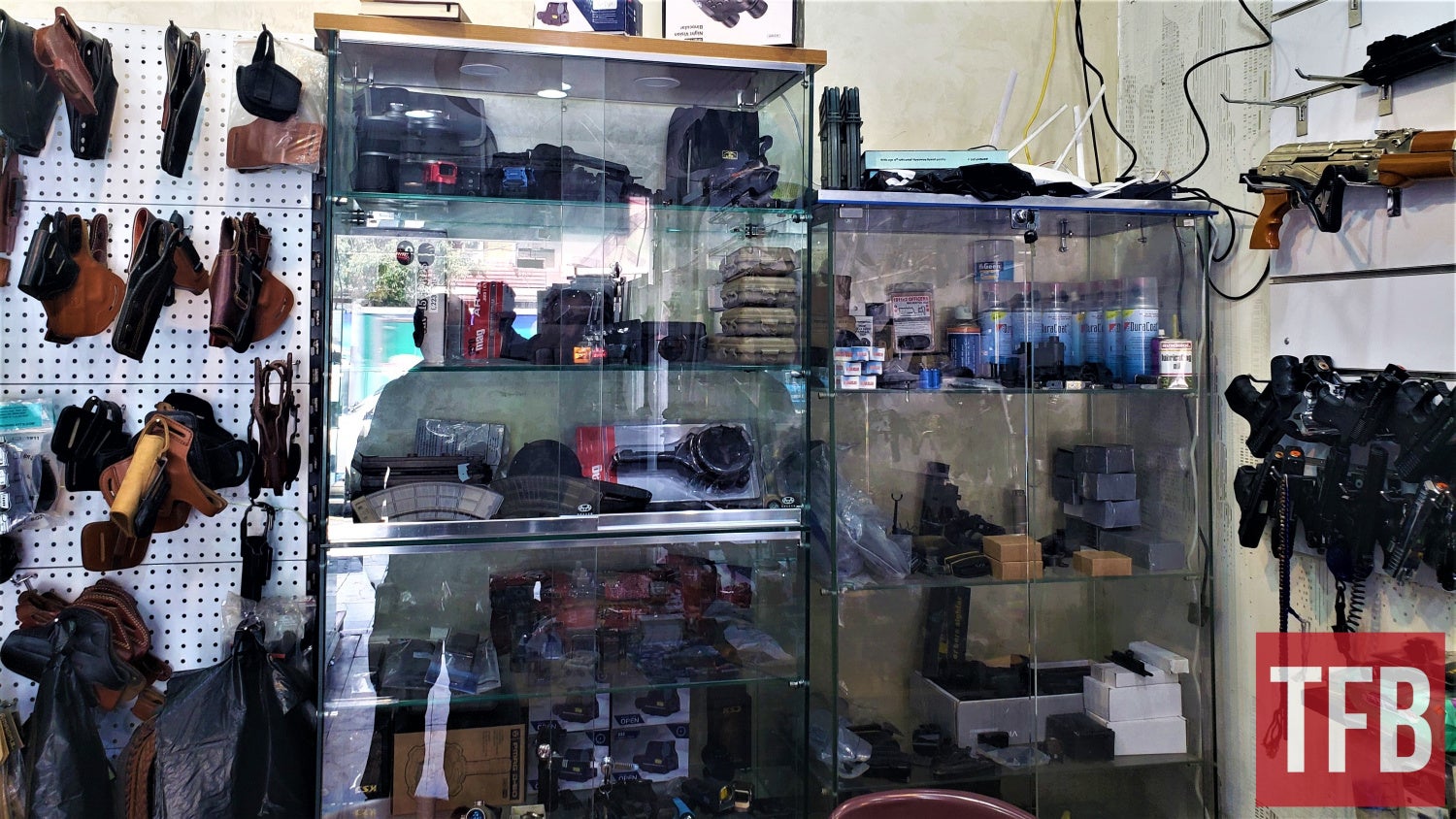
Only in Iraqi gun shops, you can see Duracoat next to an AK with a gold or silver finish
It was a good decision, generally, all military-related items are confiscated at the airport when you leave the country. On that trip, I had a laser boresight confiscated, so an Aimpoint definitely wouldn’t make it out of Iraq.
Obviously, apart from the small shops, there are a lot of illegal gun markets, even in Baghdad, where you can buy a bunch of RPGs over the counter. But even local Iraqis avoid places like that, and I decided to follow their example.
But the state is not concerned about markets like that, since government-controlled militias and gangs procure weapons there. Instead of addressing issues like terrorism and militant groups roaming free and reigning chaos all over the country, the state is restricting the rights of gun dealers with the ban on civilian firearms importation.
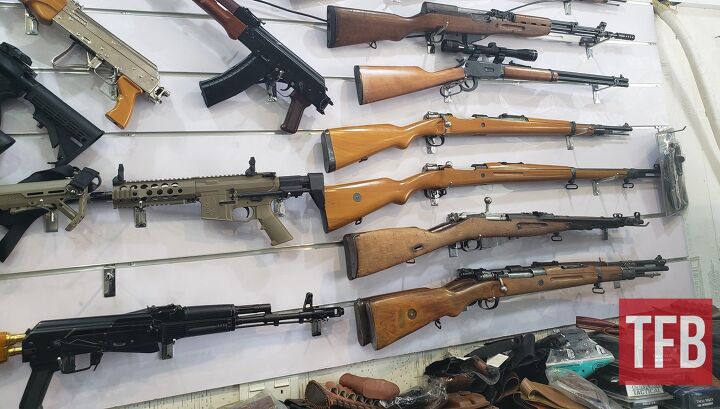
Since no new rifles are coming in, most bolt action rifles you see are old military surplus
The rights of ordinary gun owners are also infringed by the long and bureaucratic procedure to get a carry permit. As a result, even honest law-abiding citizens in Iraq prefer to skip legal procedures when it comes to firearms sales and just buy directly from the black market.
When you’re talking about Iraq, keep in mind that realistically, it is two countries within one. In the north, there is Iraqi Kurdistan, a place so different that when you’re there you often can’t believe you’re still in Iraq. And the firearms trade is so much more fun there. In part 2, I will talk about my experiences there.
If you want to know more about the Iraq firearms industry, check out this TFB B-Side Podcast.


